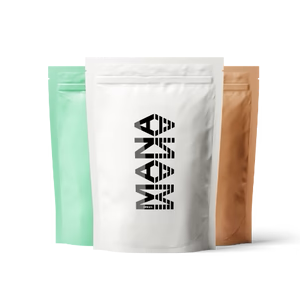
Almost overnight, we found ourselves in a world governed by a new set of rules completely different from anything we had known before. The coronavirus, in this sense, has taken much from us. Yet it has also given us the opportunity to identify what is really important in life and what we really want to change. Some of us want to develop a better daily routine. Others want to learn something new or improve relationships with close family. Wherever you are, try to put a positive spin on the restrictions in place. Below are a few tips to help you get inspired.
Tip 1: Harmonize your circadian rhythm
The circadian rhythm (CR) is the natural, 24-hour rhythm of our bodies that controls many physiological processes—the sleep-wake cycle, hormonal and nervous activity, energy level, feelings of hunger, and changes in body temperature. All cells of the human body contain “molecular clocks,” which dictate the daily rhythms of individual organs. In order for us to be optimally healthy, these systems should be synchronized.
The main determinant of circadian rhythms in mammals is the hypothalamus, which consists of approximately 20,000 nerve cells. The hypothalamus sets our rhythm based on information from our retinas, so it responds in large measure to alternations between light and dark. The way the brain evaluates these signals is based on our genes and the environment in which we live. Accordingly, it activates specific hormones and body temperature changes, and regulates our metabolism to keep us alert or put us to sleep.
A disrupted rhythm can cause fatigue, stress, lack of focus, and even depression. In the long run, a poor CR negatively impacts metabolism, immunity, skin health, the health of internal organs, and our cardiovascular system.
Mana mission: So your brain doesn’t get confused in the evening, try not to expose yourself to blue light at least 2 hours before going to bed (you can block it with special glasses or by using a filter on your phone). In the morning, make sure you get enough natural light; this will put your body and brain back into active mode.
Try to wake up and go to bed at the same time, and try not to eat late at night. A late meal will send a signal to your circadian clock that it’s time to wake up and you’ll have trouble falling asleep.
Equally important to when you eat is what you eat. Quality and quantity of ingredients, as well as the technology with which they are processed play a huge role in the regeneration of tissues and organ activity.
If you are looking for a nutritionally complete food with a balanced spectrum of macronutrients and all essential vitamins and minerals, which requires little to no prep, reach for Mana. It’ll give your body everything it needs to be healthy and save you loads of time.
Tip 2: Learn to manage stress better
The human brain is a complex tool that affects nearly every aspect of our physiology and psychology–from speech, to memory, to motor reactions, to our ability to make associations. Just like keeping our bodies in shape can keep our brains sharp, keeping our brains sharp can help keep our bodies in shape.
Meditation, for example, is an effective way to promote holistic health. According to a study by Harvard University, it has a measurable effect on the response of the amygdala, which is a part of the brain located in the temporal lobe. If we are stressed, the amygdala will evaluate the situation and, if necessary, activate the sympathetic nervous system (a division of the autonomic nervous system), which prepares the body for danger by producing stress hormones. Meditation can change these reactions and make our amygdala less active, so that we can better manage stress.
Indeed, the results of a study from 2018 suggest that, when practiced regularly for at least 8 weeks, meditation can reduce blood pressure, inflammation, and help adjust circadian rhythm.
Mana mission: Find a quiet place and sit comfortably so that your spine is in a straight position. Loosen your shoulders and neck, then put your hands on top of your thighs. Close your eyes and focus on your breath. For greater relaxation, try exhaling longer than you inhale. Focus completely on the present and let your thoughts flow freely.
Listening to binaural music may also help (frequencies between 1 and 30 Hz can put your brain on a “meditative” wavelength).

Tip 3: Expose yourself to the cold
There is research that suggests that regular, brief exposure to the cold (ice baths, cold showers, etc.) can boost immunity, reduce inflammation and pain, and increase blood flow. In one Dutch study, for example, researchers tested whether it was possible to influence the immune response of the human body through meditation, deep breathing, and cold therapy. The results were positive.
When exposed to bacterial infections, the group of participants using these techniques showed fewer symptoms because their bodies responded by producing more anti-inflammatory chemical reactions and fewer pro-inflammatory cytokines. Breathing techniques were also a factor contributing to the results of the study.
Other studies have shown that if we adapt our bodies to the cold, we also activate the production of brown adipose tissue, the undeniable advantage of which is its ability to convert white fat into energy by thermogenesis (i.e. by burning it). Brown fat can help treat obesity and some metabolic syndromes.
Mana mission: If “cold therapy” is new for you, you can start by turning off the heat in your home for a short while, taking a short walk without your jacket, or having a cold shower in the morning. But whatever you do, start slow and always listen to your body. For example, you can lower the water temperature gradually or only wet your limbs. Try not to hold your breath or forcibly tense your muscles; instead, breathe slowly and try to relax.
And remember–even small changes make a difference! Whether you decided to talk outside in the cold or take a dip in a cool river, take Mana with you. It’ll give you the energy you need, when you need it most.
Change is part of our lives whether we want it or not. So, be the change you want to see in the world and don’t wait for the circumstances around you to bring it.
If you need a little motivation to get started, download the Brandbassador application, which will let you earn rewards towards future purchases of Mana by creating fun social media content featuring our foods. Perfect for when you’re on a cold walk or wading into a river with a bottle of Mana. No cold shower pics though, please :)
Sources:
[1] healthline.com. (2020) What to Know About Cold Water Therapy. https://www.healthline.com/health/cold-water-therapy
[2] healthline.com. (2020) 17 Proven Tips to Sleep Better at Night.
https://www.healthline.com/nutrition/17-tips-to-sleep-better#1.-Increase-bright-light-exposure-during-the-day
[3] Daria Timonina. (2020) Time to improve your health: focusing on circadian rhythms.
https://www.buckinstitute.org/blog/time-to-improve-your-health-focusing-on-circadian-rhythms/
[4] Alvin Powell, The Harvard Gazette. (2018) Researchers study how it seems to change the brain in depressed patients.
https://news.harvard.edu/gazette/story/2018/04/harvard-researchers-study-how-mindfulness-may-change-the-brain-in-depressed-patients/
[5] M. K. Bhasin, J. W. Denninger, J. C. Huffman, M. G Joseph, H. Niles, E. Chad-Friedman, R. Goldman, B. Buczynski-Kelley, B. A. Mahoney, G. L. Fricchione, J. A. Dusek, H. Benson, R. M. Zusman, T. A Libermann. (2018) Specific Transcriptome Changes Associated with Blood Pressure Reduction in Hypertensive Patients After Relaxation Response Training.
https://pubmed.ncbi.nlm.nih.gov/29616846/
[6] MedicalNewsToday. (2019) What are binaural beats, and how do they work?
https://www.medicalnewstoday.com/articles/320019#how-do-binaural-beats-work
[7] healthline.com. (2017) Do Binaural Beats Have Health Benefits?
https://www.healthline.com/health/binaural-beats#potential-benefits
[8] Melinda Wenner Moyer. (2014) Supercharging Brown Fat to Battle Obesity.
https://www.scientificamerican.com/article/supercharging-brown-fat-to-battle-obesity/



